What you will learn in this article:
- A brief history of mushrooms
- Properties of mushrooms
- How to use mushrooms culinarily
- Mushroom Elixirs
- Mushrooms in tinctures
- General Precautions
A brief history of mushrooms
People have touted the health benefits of mushrooms for millenia. In fact, the oldest known record of mushroom use comes from around 5,000 BC in Algeria. Paintings depicting mushroom use were found in a cave there. The oldest written record of such mushrooms is a medical treatise from India from 3,000 BC.
These mushrooms are probably best-known within the realm of Traditional Chinese Medicine (TCM) or other traditional Asian healing systems (Japanese, Korean). Those cultures consider them to be highly valuable tonics for life, energy, and longevity. These long-lived traditional uses have now been explored by modern research, which has been compiled from around the world (more on that below).
In Europe, Finland especially stands out for mushroom cultivation and research. Some of the top chaga mushroom researchers in the world, including Dr. Kirsti Kahlos of the University of Helsinki, live in Finland. During World War II, the abundantly growing chaga mushroom was used as a coffee substitute.
In Russia, researchers have been studying how chaga, and other native mushrooms might be able to support cellular health. They discovered a particular type of compound in chaga, bioactive terpenes containing an OH group at C-22 plus a side chain unsaturated bond, with significant importance to medical research.
One of the key discoveries about the mushrooms discussed in this article is that they contain certain polysaccharides.
The two major categories of polysaccharides are homopolysaccharides (made up of starch and glycogen and have little known impact on health) and heteropolysaccharides, which may support the immune system. They are also known as Immunomodulating Polysaccharides or IP or PS. Beta-glucans are in this category. You’ll find they are also included on the Hormones Balance site as beneficial fiber, and as such, they help to support a healthy microbiome.
Note: Most experts say mushrooms are essentially indigestible if eaten raw. With their tough cell walls, you’re just consuming fiber. To release nutrients like protein, B vitamins, minerals, and novel compounds, they must be cooked or heat-treated (i.e. in soup, sautéed, or extracted).
Functional properties
Reishi
Reishi mushroom (Ganoderma Lucidum) is known as Ling Zhi in TCM and has been called the “queen of mushrooms.”
Reishi has traditionally been given to support healthy sleep cycles by East Asian herbalists. Even today, the State Pharmacopoeia of the People’s Republic of China year 2000 edition says that reishi helps ease the mind and recommends it for supporting healthy sleep.
The book P’en-Ts’ao Kang-Mu, a Ming Dynasty herbal medicine guide by Li Shin-Chen, recommends Reishi for supporting a smooth transition through menopause.
Some other benefits of Reishi include:
- Supporting hormonal and immune balance (monkey study)
- Supporting balanced female hormones (study)
- Supporting sleep (animal study)
- Supporting a healthy weight (study)
- Supporting balanced mood (in a study of breast cancer patients)
- Supporting healthy liver function (study)
- Supporting the body’s natural anti-inflammatory response (study)
- Supporting healthy anti-aging effects (study)
Chaga
Chaga mushroom (Inonotus obliquus) grows primarily on birch trees (but also ash and maple) in northern climates, such as Russia, Japan, northern Europe, and some northern states of the USA. Chaga is sometimes called the “king of mushrooms.”
Some benefits of Chaga include:
- Supports the body’s anti-inflammatory response (animal study)
- Supports energy and endurance (animal study)
- Supports healthy cognitive function (animal study)
- Supports healthy metabolism (animal study)
- Supports immune system (against HIV and hepatitis C)
Precautions: Chaga is high in oxalates, so keep this in mind if you suffer from kidney stones, vulvodynia, mast cell disorders, or other oxalate-related symptoms. Chaga is also a blood thinner and can help lower blood sugar levels. For that reason, it may not combine well with blood thinning medications like Warfarin or aspirin or with diabetes medications. Always speak to a trusted physician or other health care provider before adding new supplements, especially if you are pregnant, nursing, are currently ill, or take medications.
Cordyceps
Cordyceps is the name given to a whole collection (genus) of 750 different fungi which are native to South Asia, Europe, and North America. Cordyceps sinensis is the most studied. However, in 2007, the fungus widely known as Cordyceps sinensis was found to be unrelated to the other cordyceps species and so was reassigned to a news genus. It’s now officially known as Ophiocordyceps sinensis, but it’s still referred to as “cordyceps.”
Cordyceps sinensis is the only cordyceps-related fungus to be officially listed as an herbal remedy in Chinese pharmacopoeia.
Cordyceps fungus that grows on ghost moth caterpillars (Thitarodes spp). For that reason, it’s known as “caterpillar fungus.”
Some health benefits of Cordyceps include:
Lion’s mane
Lion’s Mane mushroom (Hericium erinaceus) is one mushroom that’s also considered a nootropic, as it may support healthy cognitive functioning.
Some benefits of Lion’s Mane include:
- Supports memory (study)
- Support your body’s natural nerve repair (study)
- Supports balanced mood (study)
- Supports bone health (review)
- Supports healthy immune function and the body’s natural anti-inflammatory response (study)
- Supports healthy metabolism (study)
Shiitake
Shiitake mushrooms (Lentinula edodes) have a long history of use in traditional Asian cultures. They are traditionally used as a tonic for supporting circulation, the immune system, and overall health. They are also rich in protein.
Most studies and therapies have used concentrated extracts containing lentinan, an immunomodulating polysaccharide. In fact, polysaccharides are where the main functional components of mushrooms reside. The recommended amount is 2-6 grams per day of whole, dried mushroom.
Some benefits of Shiitake include:
- Supporting a healthy weight (study)
- Supporting gut immunity and the body’s natural anti-inflammatory response (study)
- Promoting cellular health (study)
Shiitake mushrooms can be eaten on a regular basis with no known contraindications or interactions except if you’re taking immunosuppressive/anti-rejection drugs (then avoid).
Eating raw or undercooked shiitake may result in a rash/ dermatitis/ photosensitivity, but this is very rare. Always speak to a trusted physician or other health care provider before adding new supplements, especially if you are pregnant, nursing, are currently ill, or take medications.
Maitake
Maitake mushrooms (Grifola frondosa) are also known as “Hen of the Woods.” The originate in China but also grow in Japan and North America.
Some health benefits of Maitake include:
- Supporting healthy metabolism (animal study 1 and animal study 2)
- Supporting hormonal balance (study)
- Supporting healthy cholesterol levels (study)
How to Use Medicinal Mushrooms Culinarily
There are all kinds of ways to use medicinal mushrooms in the kitchen. Depending on the type, they can be added to soups, stir-fries, salads, eggs, wild rice dishes, meat dishes, or desserts. They can also be taken in as a tea or elixir. Are you a fan of coffee or chocolate? Mushrooms can be incorporated into lattes and brownies and you’ll never even know the difference!
Reishi mushrooms are most often consumed in the form of a powder which may be consumed as a supplement, as tea, or even added to thicken soup. Try this Reishi Mushroom Soup with Carrots and Kale.
If you have whole dried reishi mushrooms, you can make this Winter Tonic Mushroom Soup which uses a 2-day process to make a mushroom decoction soup.
It can also be hidden in sauces, such as this Reishi-baby bella bolognese served over spiralized butternut squash.
Chaga makes a great coffee substitute. It’s earthy, warming, and satisfying. Try this recipe for a miel-style Chaga Latte with coconut milk.
The flavor of chaga pairs really well with chocolate. Try this Chaga Hot Chocolate which is spiced with cinnamon and vanilla and sweetened with maple syrup.
How about some brownies? You can add a 1-3 teaspoons of chaga powder to your favorite healthy brownie recipe. I recommend my Red Velvet Grain-Free Brownies.
Cordyceps can help if you’re trying to get off the caffeine. It’s great for supporting healthy energy levels without the insomnia – they carried me through the dreadful few days of caffeine cravings (I wrote about the getting-off caffeine protocol here).
Because it has a chocolatey flavor, cordyceps is another mushroom that is great with chocolate or as a coffee substitute. Cordyceps Sinensis tends to be used as an extract powder, rather than as the whole mushroom.
Add a little extract into tea or soup or add a powder into some juice, yogurt, or applesauce.
Cordyceps Militaris / cordyceps flower, however, may be used as the whole mushroom in soups, as a side dish, in congee, on salads, etc. Here’s a recipe for Cordyceps Flower Chicken Soup.
For Cordyceps Sinensis, try a superfood smoothie in the form of a Power-up Morning Cordyceps Tonic.
Or here’s a polyphenol- and adaptogen-rich recipe for Chocolate Raspberry Bars with Cordyceps.
Lion’s mane is wonderful simply sauteed in butter or olive oil, seasoned with salt and pepper. Try this simple recipe with butter, white wine, and chives.
This mushroom seriously tastes a lot like deep-fried seafood when fried or roasted. No wonder these Mushroom “Crab Cakes” are so delicious! Substitute popped organic millet or flax meal for the bread crumbs.
As a delicious side dish for beef or lamb, try Roasted Lion’s Mane Mushrooms with Sherried Shallots.
Have your cake and support your brain, too. Try my No Bake Brain Boosting Brownie recipe with lion’s mane powder.
Shiitake is well worth incorporating in the diet on a regular basis. According to research from the University of Florida, eating one 4-ounce serving of shiitake mushrooms every day supports healthy immune function and the body’s natural anti-inflammatory response that increase the risk of disease.
I personally cook with them often; sautee them with heaps of vegetables. Keep some shiitake-infused broth on hand with Instant Pot Immune-Boosting Chicken Broth. You can also try my Easy Miso Soup.
For a stir-fry, enjoy either shiitake or oyster mushrooms in my Mushroom Leek Stir Fry.
Maitake is delicious in soup. For a simple broth, try Roasted Maitake Mushrooms in Sesame-Miso Broth.
Maitake (“hen of the woods”) is great paired with chicken (“hen”). Try Bon Appetit’s recipe for Prosciutto-Stuffed Chicken with Mushroom Sauce.
Chef Richard Landau of Vedge restaurant in Philadelphia has a delicious recipe for Seared Maitake Mushrooms served over a Leek Remoulade, also featured in Bon Appetit.
Why not take your typical mushroom and swiss burger up to the next level? Try this Maitake Mushroom Burger, no bun needed. Or make it into Maitake “Bacon”!
Cooking for Hormone Balance has a wonderful recipe including maitake and other medicinal mushrooms in the recipe “Seriously Mushroom Stew.”
Or, if you just want a simple way to get the benefits of these wonderful mushrooms…
Try a Mushroom Elixir
One of my favorite tea companies, Pique Tea, makes two mushroom elixirs: Chaga Energy Elixir for daytime and Reishi Calm Elixir for nighttime.
What makes Pique Tea mushroom elixirs special? Not only have they put the King and Queen of the medicinal mushrooms into convenient tea crystal packets, they have also blended the mushrooms with complementary herbs to enhance the mushrooms’ beneficial effects.
Top Traditional Chinese Medicine (TCM) doctors were enlisted to formulate these very special blends based on formulas that are centuries old.
Chaga Energy Elixir (Daytime)
Chaga Energy Elixir is a wonderful beverage to boost your energy levels while supporting overall health and giving your brain a little extra edge. The ingredients are a synergistic blend of chaga, ginseng, and burdock. The flavor is woody, earthy, and bitter with notes of coffee.
Pique Tea’s Chaga is wild harvested from birch trees that grow in the most pristine parts of the Siberian tundra.
Each Pique tea stick delivers 275 mg of pure chaga and 27 grams of pure chaga polysaccharides.
Reishi Calm Elixir (Night time)
Reishi Calm Elixir is a blend of reishi powder, reishi extract, date extract, goji powder, and luohan fruit/monk fruit extract. The flavor is smooth, sweet, and bitter with underlying notes of dates.
Again, the synergy that occurs among the complementary Chinese herbs is what really enhances the effects of the reishi. This combination helps soothe your body at the end of the day, helping support digestion, relaxation, and deep sleep.
What else makes Pique tea’s reishi unique? Pique’s reishi is grown on grass rather than on trees or logs, as is conventionally done. This is done using a technology known as JunCao™, which is a series of comprehensive techniques used to cultivate reishi on herbaceous plants to increase its content of beneficial natural compounds, including new sterol molecules that help support memory.
This patented organic-compliant process has received more than 20 global honor certifications and results in a superior grade of reishi.
To summarize, benefits of using JunCao™ methods for reishi cultivation include:
- Increased nutritional value (maximizes bioavailability and potency)
- Environmentally-friendly method (doesn’t destroy wild forests)
- A more efficient way of growing
- Advantageous for picking mushrooms and collecting the spores
Each Pique tea stick delivers 250mg of pure reishi and 54mg of pure reishi polysaccharides.
What’s great about all Pique teas is that they are triple toxin screened for pesticides, mold, and heavy metals such as lead and mercury. They have been analyzed by the Fresenius Institute in Germany, a top lab analysis company that’s been in the business for over 150 years. The results confirm that Pique teas are extremely clean and not only meet but surpass organic standards.
Mushrooms in tinctures
To extract the polysaccharides (the active medicinal constituents), mushrooms need a water extraction process which is then followed up with a dehydration process (just like in Pique Tea’s mushroom elixirs) or blended with alcohol (for preservation).
My favorite brand is Host Defense.
When I went off caffeine (I wrote about the protocol I used), I used these two products:
I used this cordyceps tincture to help support my energy levels when quitting caffeine. Even though the recommended dose was 1-2 times a day, I used it 10-12 times a day and had no bad reactions. My energy boost would last for 1 to 1.5 hours.
I used this lion’s mane tincture to help support my mental focus when going quitting caffeine. Even though the recommended dose was 1-2 times a day, I used it 5-6 times a day and had no bad reactions. It also helped support memory.
I personally prefer tinctures over pills (which are also an option) just because they get absorbed and act much quicker as compared to pills.
General precautions
Just like anything… “mushrooms aren’t for everyone.” How you react to mushrooms, herbs, or anything you consume depends on your individual physiology, genetics, and what else you might be taking, in the form of pharmaceuticals or supplements. Interactions can occur.
Some mushrooms may not be the best for those whose immune system is Th1 dominant (e.g. those with Hashimoto’s, IBS, IBD, PCOS, Type 1 Diabetes, lupus, Celiac disease, and more). These include reishi, shiitake, maitake, and lion’s mane.
Chaga helps balance Th1 and Th2 and cordyceps seems to balance the Th1 and Th2, but may slant slightly toward Th1, so be careful.
Bottom line: If it seems like your Th1 immune system is out of control, opt for chaga or possibly cordyceps. Always speak to a trusted physician or other health care provider before adding new supplements, especially if you are pregnant, nursing, are currently ill, or take medications.
Additionally, certain mushrooms may interact with drugs used for high cholesterol, diabetes, metabolic syndrome, or high blood pressure, so if you’re on one of those medications, make sure you exercise caution and check with your doctor if you’re going to start consuming a larger quantity of them. Always do your own research, think for yourself, and speak to a qualified physician or other health care provider. Mushrooms discussed above may have more effects than are listed. Research is ongoing.
Resources:
https://www.ncbi.nlm.nih.gov/pubmed/21718617
https://www.ncbi.nlm.nih.gov/pmc/articles/PMC5758346/
http://www.tandfonline.com/doi/full/10.1080/07315724.2014.950391
https://www.ncbi.nlm.nih.gov/pmc/articles/PMC6010762/
https://www.ncbi.nlm.nih.gov/pmc/articles/PMC3236089/
https://www.ncbi.nlm.nih.gov/pubmed/22207209
https://www.ncbi.nlm.nih.gov/pubmed/23796220
https://www.mycologyresearch.com/articles/view/28
https://www.ncbi.nlm.nih.gov/pmc/articles/PMC5618583/
https://www.ncbi.nlm.nih.gov/pmc/articles/PMC5372873/
https://link.springer.com/content/pdf/10.1007/s10086-008-0992-2.pdf
https://www.sciencedirect.com/science/article/pii/S0378874112004771?via%3Dihub
https://www.ncbi.nlm.nih.gov/pmc/articles/PMC4388940/
https://www.jstage.jst.go.jp/article/cpb/55/8/55_8_1222/_article
https://chagahq.com/chaga-mushroom-cancer/
https://www.ncbi.nlm.nih.gov/pubmed/19041933
https://www.ncbi.nlm.nih.gov/pubmed/24940902
https://www.ncbi.nlm.nih.gov/pubmed/21779570
https://www.ncbi.nlm.nih.gov/pubmed/29775778
https://www.ncbi.nlm.nih.gov/pmc/articles/PMC2104736/
http://stevenraker.com/Cordyceps_Ascomycetes.pdf
https://www.ncbi.nlm.nih.gov/pubmed/12165189
https://www.ncbi.nlm.nih.gov/books/NBK92758/
https://www.ncbi.nlm.nih.gov/pubmed/18844328
https://www.ncbi.nlm.nih.gov/pubmed/26244378
https://www.ncbi.nlm.nih.gov/pubmed/26853959
http://www.ncbi.nlm.nih.gov/pubmed/20834180
https://www.ncbi.nlm.nih.gov/pubmed/26150007
https://www.ncbi.nlm.nih.gov/pubmed/28087447
https://www.ncbi.nlm.nih.gov/pubmed/26547693
https://www.ncbi.nlm.nih.gov/pubmed/28087447
https://www.ncbi.nlm.nih.gov/pmc/articles/PMC3199106/
https://www.ncbi.nlm.nih.gov/pubmed/16566671
https://www.ncbi.nlm.nih.gov/pubmed/25866155
https://www.ncbi.nlm.nih.gov/pubmed/24292357
https://www.researchgate.net/scientific-contributions/4793689_K_Kahlos
https://www.ncbi.nlm.nih.gov/pubmed/27562990
https://www.ncbi.nlm.nih.gov/books/NBK92757/
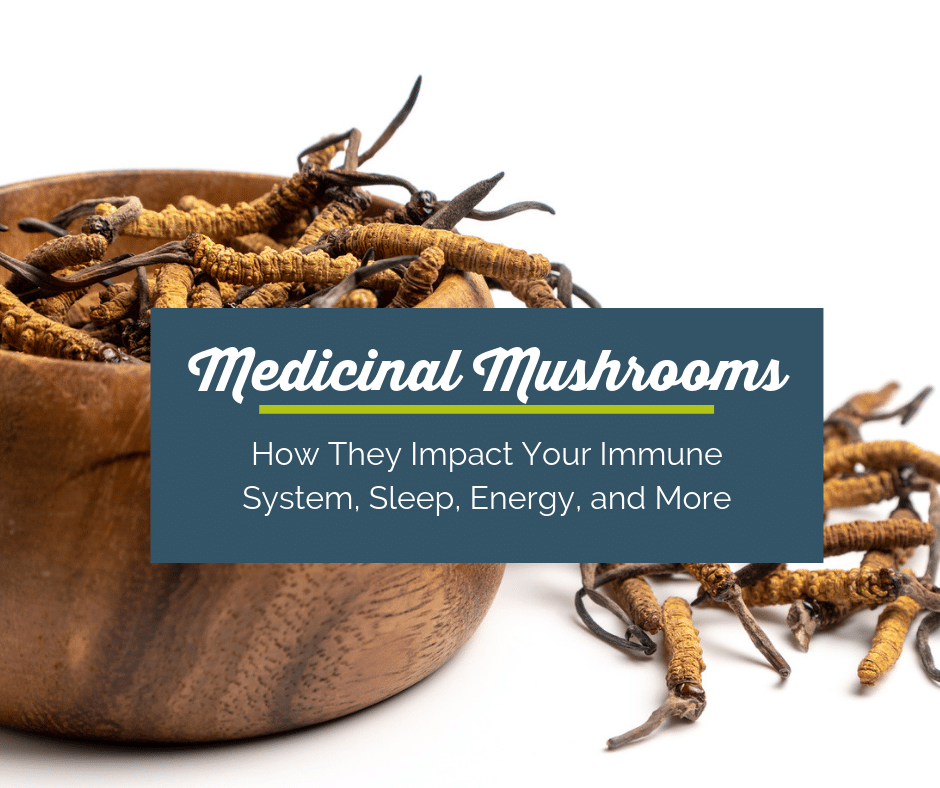
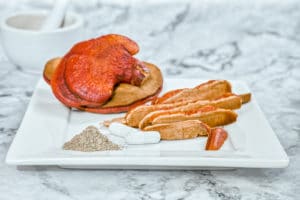
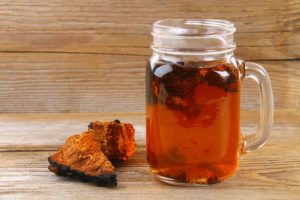
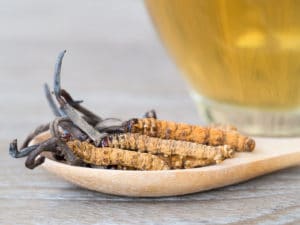
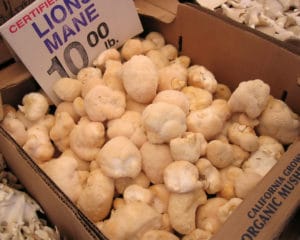
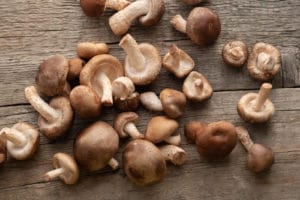
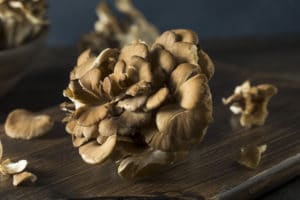
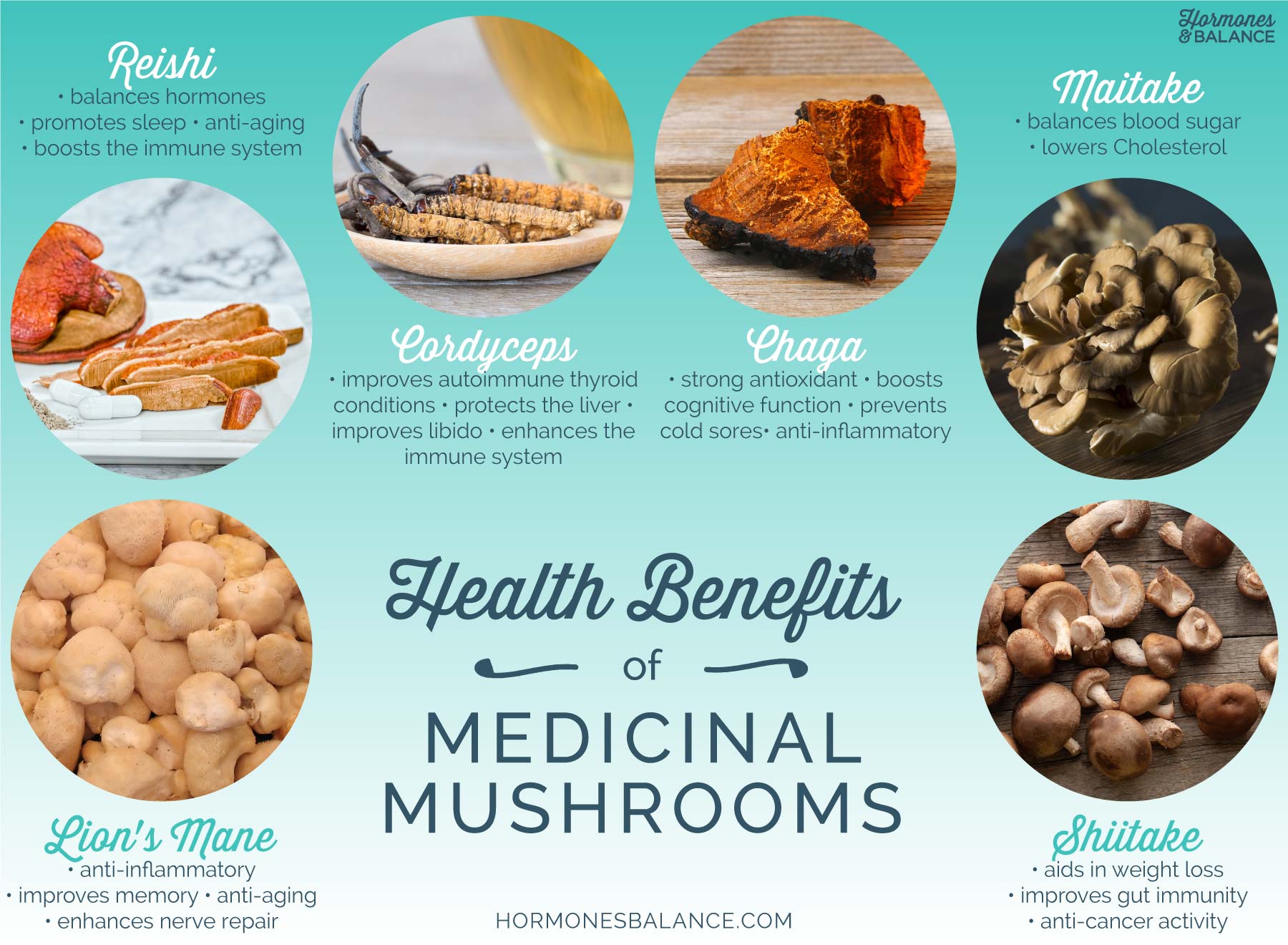
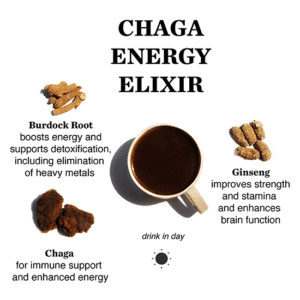
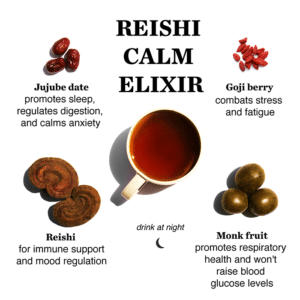
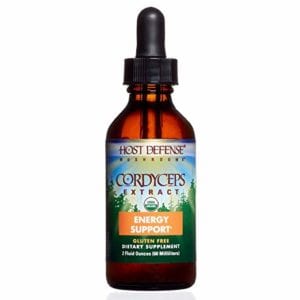
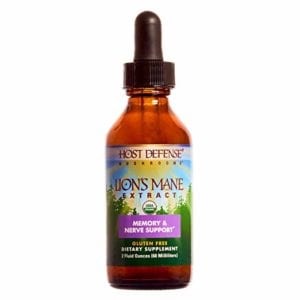
I would like to know if there is a pill that is equal to the tenures?
Hi Yvonne,
We have found an equivalent in pill form at this time. Are you going to try any of Magdalena’s suggestions? ~Deanna HB Team
So I’m confused, what is it that I use for the “better than coffee” latte then? I also have a 7 mushroom powder mix, that seems to agree with me and is a great alternative to coffee. Are you saying medicinal mushrooms like this aren’t good for me?
Hi Vanessa, I’m glad to hear your mushroom blend is working for you!
Here is the link to the recipe for the Better Than Coffee Latte: https://hormonesbalance.com/recipes/chicory-latte-almost-coffee/
All we suggest is to tune in and listen to your body as “mushrooms aren’t for everyone.” How you react to mushrooms, herbs, or anything you consume depends on your individual physiology, genetics, and what else you might be taking, in the form of pharmaceuticals or supplements. Interactions can occur.”
I hope this helps clarify! If you have further questions, please email us at [email protected] for a quicker reply.
Thank you!
~ Jeanne HB Team
Hi, that’s not really what I asked. If the mushroom powder I’m using is not extracted that what you are saying in your article is that it’s not going to benefit me?
Useful Information
Thank you:) ~ HB Team
Thank you for the information on Th1 and Th2 pathways and the mushrooms that are best (or not) for them. This is the fine tuning that I have been searching for!
Great! ~HB Team
Hi, do you know if Lions Mane is able to lower TH2 cells as i am Th2 dominant.
Some tinctures contain alcohol which is not a good option if you are a recovering alcoholic. I take mushrooms in capsules which works for me. For sigmatic is a company I use frequently.
Correction. That’s Four Sigmatic
Four Sigmatic is indeed an excellent company. We love Rasa as well!
https://hormonesbalance.com/allthingswelove/product/rasa-original/
Good point! If you would like a non=alcoholic tincture, look for ones made with glycerin.